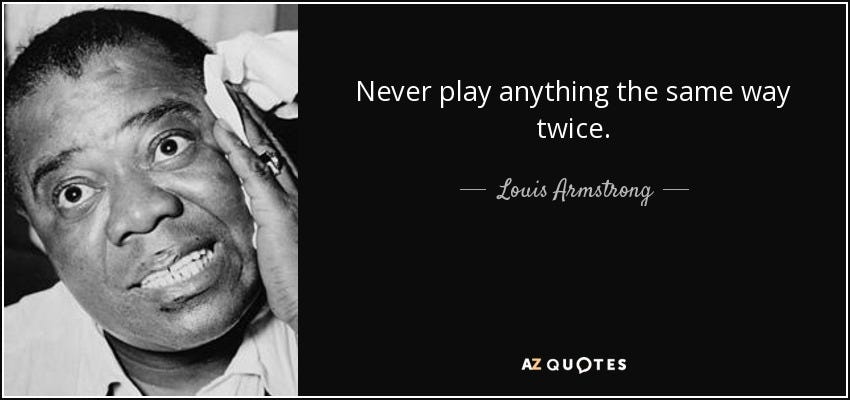Top 5 Ways that Jazz Playing Improves Classical Playing
There are a great number of students that I see on a daily basis who perform in orchestras and wind bands in addition to playing jazz. How does playing jazz inform their musical choices and make them even better classical players?
First, there are two points that I would like to make. One is that academia is stuck on a CLASSICAL/JAZZ divide and there are so many other genres that are too often ignored—rock, Latin, funk, hip hop, reggae, R&B, etc… I tell all of my students that they need to remember it is totally possible to have a lifetime of music making that doesn’t include either jazz OR classical music.
The other point that I want to make is that the notion that “jazz improves classical playing” might suggest some type of hierarchy in which classical is the pinnacle of music making above all else, which is entirely false.
All of this said, it is fun to play in a wind band or orchestra in addition to jazz and it is important to see the merits of a holistic study of music. In other words, a high school or undergrad student should be studying a wide range of styles, instruments, and genres to inform their playing on their primary instrument.
In my own life, I went back to performing classical music after a few years of only playing jazz, hip hop, reggae, and funk music. Based on my own experience, I see the value of playing ear based improvisatory music and the impact that it can have on playing scripted, fully scored, Western art music.
Top 5 Ways that Jazz Playing Improves Classical Playing
Intonation
Jazz playing connects the ear, mind, and fingers so good intonation is included in this connection. A jazz soloist ideally hears the notes and phrases before playing and this skill translates well to interpreting classical music.
Blend
Students who play in jazz ensembles of any size have to listen across the band to blend with the other players. I have had strong classical players participate in my large jazz ensembles and they have commented about the challenge of hearing across the ensemble. I am confident that this awareness and refined skill learned in a jazz ensemble translated well in classical chamber groups and larger ensembles.
Awareness of Form
We train our jazz players to be comfortable hearing four and eight bar segments and also outlining forms—typically AABA or ABAC forms. This translates well to making informed musical decisions about clearly articulating classical motives or themes and also highlighting important structural parts of classical pieces.
Technique
A firm knowledge of scales, theory, and technique is required to be an effective jazz player. This clearly translates well to classical playing—for example jazz players practicing diminished scales are also practicing classical octatonic scales because it is the SAME scale. More often than not, a jazz musician playing classical music is going to simply label the scalar passages as scales in order to easily and effectively perform the passages.
Ability to be “in the moment”
Musicians in any genre have two choices: 1) to strive to perform a piece of music the same every single time, OR 2) to strive to interpret a piece of music such that each performance may be slightly different. There is a quote attributed to Louis Armstrong— “never play the same thing twice” — and jazz musicians tend to prescribe to this philosophy. The essence of jazz improvisation is reacting to other musicians in real time, so this translates well to classical playing. This musical freedom and musical fearlessness is a tremendous asset to performing classical music and accessing a deep level of expressivity and freshness.
I am curious what other experiences that jazz musicians have had performing classical music?



